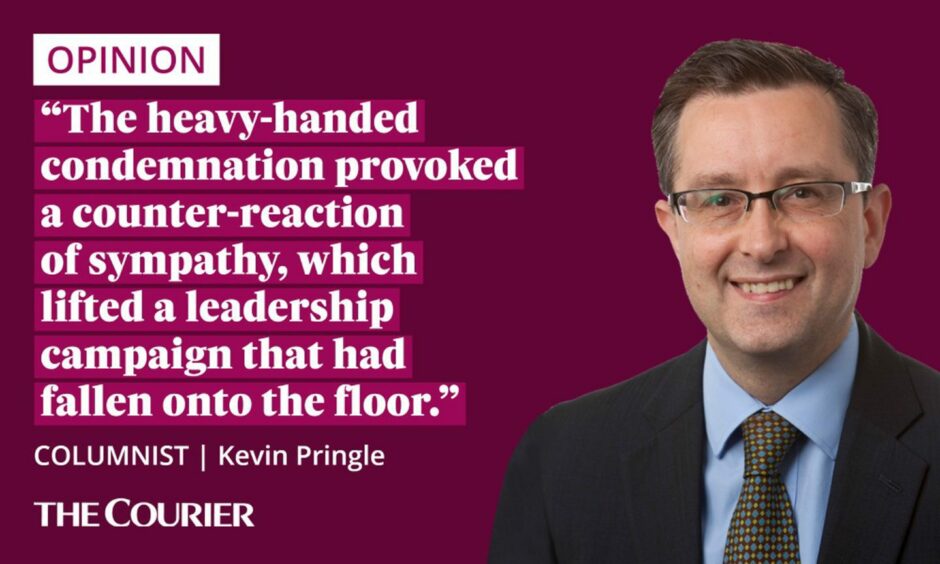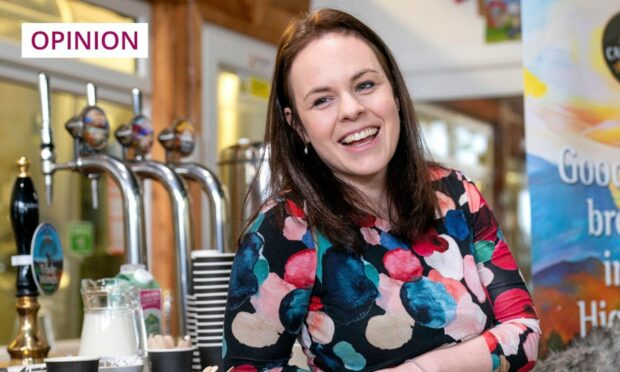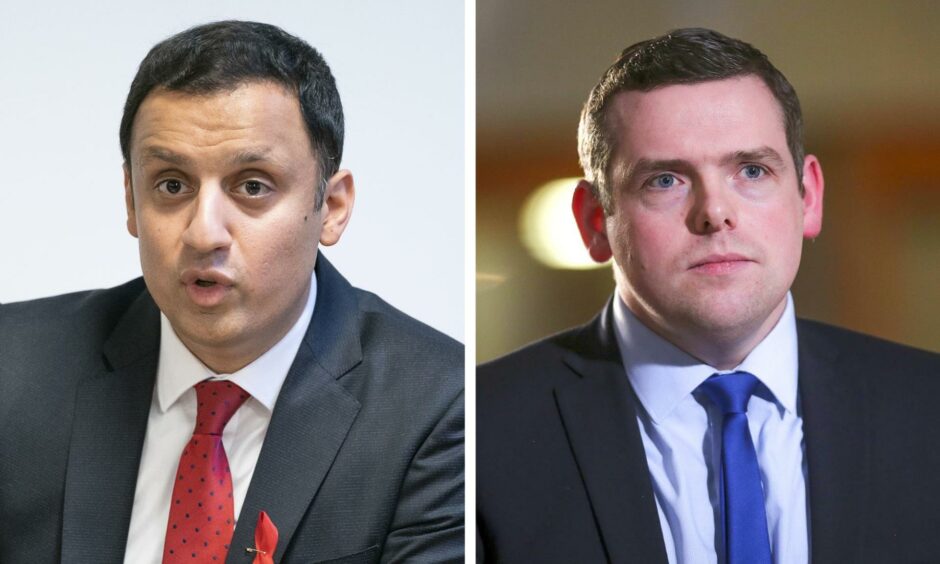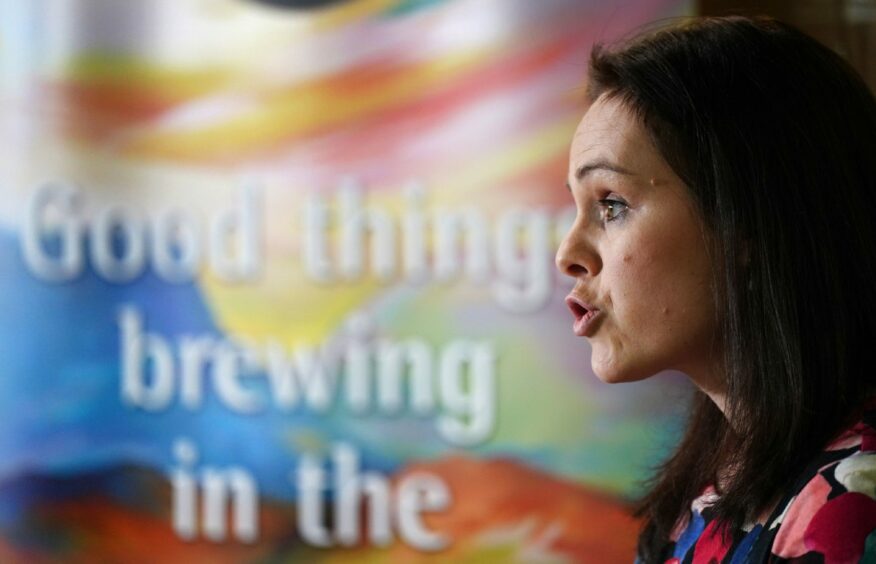In the dog-eat-dog world of Scottish politics, is there any place for the human factor?
Does the way that politicians treat each other make any difference to the job they do, particularly in how their performance is assessed and even success achieved?
In other words, is it the case that it’s not just nice to be nice but that – in terms of enlightened self-interest – decency is also advantageous?
I think it is.
To take a recent example, the reactions to Nicola Sturgeon’s resignation announcement enhanced the reputation of one opposition leader at Holyrood – Labour’s Anas Sarwar – and diminished that of another: the Conservatives’ Douglas Ross.

After a curt recognition by Mr Ross that “political leadership is demanding and takes its toll on a person and their family”, the rest of the statement was a diatribe against the first minister and all her works.
Mr Sarwar, by contrast, was warm and empathetic. He paid tribute to Ms Sturgeon’s achievements and wished her well for the future, without shying away from his political differences with her.
Former Conservative MSP Adam Tomkins was moved to tweet: “I’ve just read both Anas Sarwar’s and Douglas Ross’s statements reacting to Nicola Sturgeon’s resignation. One is classy; the other so entirely devoid of class it could be a parody.”
Scottish Labour’s shifting party politics
It’s not just that Labour’s comments were courteous; that’s not the point.
Politically, they were much more effective by portraying Mr Sarwar as an expansive leader who is interested in reaching out and speaking to people beyond his party’s base.
Mr Ross gave the impression of only wanting to appeal to the now declining number of Tory voters in Scotland and hard-boiled unionist sentiment.
He certainly did nothing to dispel Theresa May’s damaging description of the Conservatives more than 20 years ago as the “nasty party”.
Having visited Scottish Labour’s recent conference in Edinburgh, I can testify that the atmosphere was friendly and good-natured towards those of us whose allegiances lie elsewhere.
I had last attended a Labour gathering six months before the 2007 Scottish Parliament election, and that was an altogether different affair.
Every debate and fringe event was a platform to “bash the nats”.
I’ve just read both Anas Sarwar’s and Douglas Ross’s statements reacting to Nicola Sturgeon’s resignation. One is classy; the other so entirely devoid of class it could be a parody. (If only it were.) Well done @AnasSarwar 👏
— Adam Tomkins (@ProfTomkins) February 15, 2023
I’m certain that this monomania throughout the campaign was one reason why, for the first time ever, Labour lost out to the SNP come polling day.
Support for Forbes was a surprise for Scottish politics
What applies between political parties also applies within them.
Whatever the reality, the perception is that the SNP hierarchy came down on Kate Forbes like a ton of bricks following her comments that, had she been an MSP at the time, she would have voted against same-sex marriage.
I don’t agree with Ms Forbes’s view – nor with the way she expressed herself on this issue – but I respect that it arises from her deeply-held faith.
For me, it’s of greater importance that she accepts equal marriage as a reality that is here to stay. She will just have to thole it.
Usually, we sniffily insist that we’ll judge politicians by their deeds, not their words.
In this instance, Ms Forbes’s critics took the contrary approach.
In any event, the attacks that rained down on her had the opposite effect to the one presumably intended.
The heavy-handed condemnation provoked a counter-reaction of sympathy, which lifted a leadership campaign that had fallen onto the floor.
The “haud oan a minute” factor also came into play, with people remarking that Ms Forbes held exactly the same beliefs as she expresses now when appointed to the senior position of the Scottish Government’s finance and economy secretary.
Profound disagreement is the stuff of politics – but playing nice works best.
Brexit agreement is an opportunity for SNP
While the SNP is consumed with a leadership election to replace Nicola Sturgeon, it needs to be careful not to miss fresh opportunities in making the independence case.
Since Brexit, I’ve believed that the ideal position for Scotland – politically, economically and diplomatically – is to be an independent nation in the European Union, while having the softest possible border with the rest of the UK.
Is such an arrangement achievable? Only if the people of Scotland are determined on this destination, and if we deploy consummate skill and display bucketloads of goodwill towards our friends south of the border and in the rest of Europe.
The new Brexit agreement on Northern Ireland reached by the EU and the UK government on Monday shows what can be accomplished when serious people negotiate.
The prime minister, Rishi Sunak, said that the deal delivers a “smooth flow of trade within the United Kingdom” for Northern Ireland, and enables “Northern Irish businesses to continue accessing the EU market.”
If Scotland had dual access to the European and British markets – as the biggest English-speaking country in the EU – we would become a magnet for jobs and investment. That’s what I call the best of both worlds.













Conversation